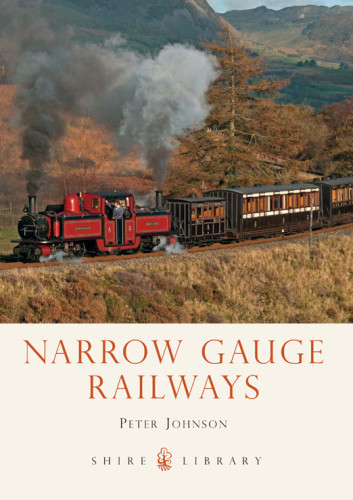

Most ebook files are in PDF format, so you can easily read them using various software such as Foxit Reader or directly on the Google Chrome browser.
Some ebook files are released by publishers in other formats such as .awz, .mobi, .epub, .fb2, etc. You may need to install specific software to read these formats on mobile/PC, such as Calibre.
Please read the tutorial at this link: https://ebookbell.com/faq
We offer FREE conversion to the popular formats you request; however, this may take some time. Therefore, right after payment, please email us, and we will try to provide the service as quickly as possible.
For some exceptional file formats or broken links (if any), please refrain from opening any disputes. Instead, email us first, and we will try to assist within a maximum of 6 hours.
EbookBell Team

4.4
62 reviewsNarrow gauge railways, so well suited to difficult, mountainous terrain, were built in many of the UK's most scenic locations. Their genesis was in mines and quarries where they replaced man- or horse-pulled wagons, but their adaptability meant that by the 1860s they were also carrying passengers, in some cases over quite considerable distances.
Today a good proportion of all the important lines survive in the service of tourists, whose appreciation of the landscape, and the railways themselves, keep these relics of industrial Britain alive in all their variety. Peter Johnson has been researching and writing about narrow gauge lines for many years, and this is the perfect introduction to a rich and appealing corner of British railway history.